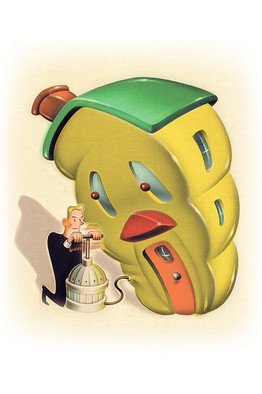 There’s plenty of good scholarship about the causes of the housing boom and bust that triggered our latest economic woes — Thomas Sowell has a good book on the topic, for instance — and the latest Barron’s adds another interesting perspective. Martin Conrad, chief investment strategist for a private investment group, devotes a guest column to the factors that drove the great housing “mania.”
There’s plenty of good scholarship about the causes of the housing boom and bust that triggered our latest economic woes — Thomas Sowell has a good book on the topic, for instance — and the latest Barron’s adds another interesting perspective. Martin Conrad, chief investment strategist for a private investment group, devotes a guest column to the factors that drove the great housing “mania.”
Manias occur for many reasons, but great manias are made possible and sustained by errant government policies that may seem to have good reasons, none of them with any long-term economic value. Housing, despite high leverage, high transaction costs, and poor liquidity, was promoted as a dream investment for everyone. Massive intervention in this market by populist government policies and agencies fostering affordability exacerbated these normal defects and disastrously distorted the market. It was a “dream,” in the sense of confused, wishful thinking. But to think and act this way with many trillions of dollars, most of it borrowed, was irresponsible on an historic scale.
There is now much media commentary that no sustained and robust recovery is possible until the housing sector recovers (that is, until house prices rise again). This desire to simply reinflate the collapsed bubble would likely yield the same disastrous result again. Another course would likely be more effective: restructuring away from so much dependence on leveraged, expensive, and speculative housing values. We should no more regret the demise of expensive housing than we should the decline of expensive oil, both of which are poorly correlated with productive, sustainable economic growth, but strongly correlated with damaging inflation.
Disciplined buyers — too long unfairly disadvantaged by government policies — are now sitting on trillions in savings that are earning, doing, and financing nothing. This money could clear the housing market, but only at lower, fairer prices. That would finally be “affordable housing.”
Manias begin in obscurity and pessimism, rise with confidence and imitation, reach a state of euphoria and finally end in tragedy. They often change history in ways that are not foreseeable.


